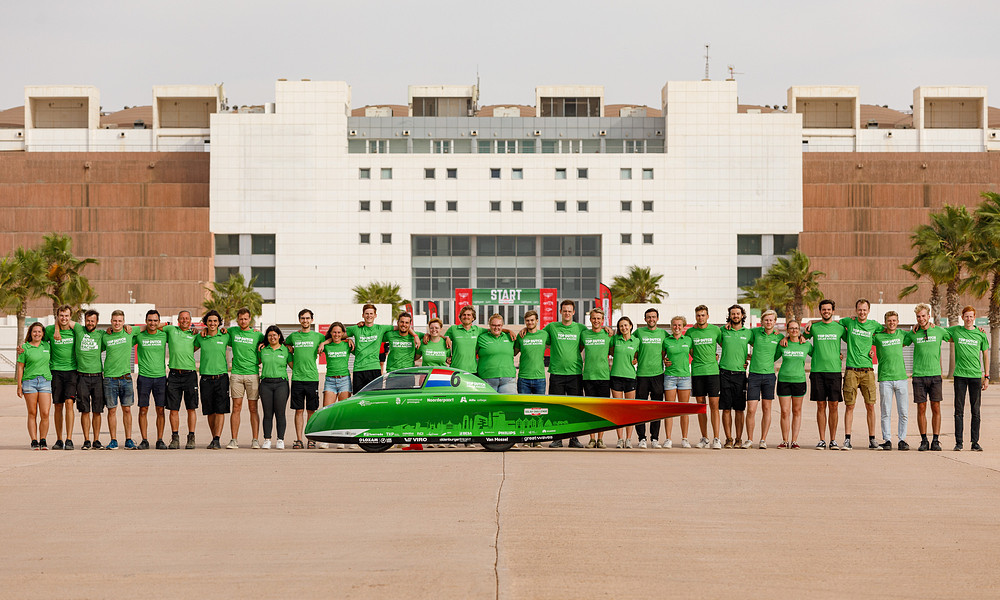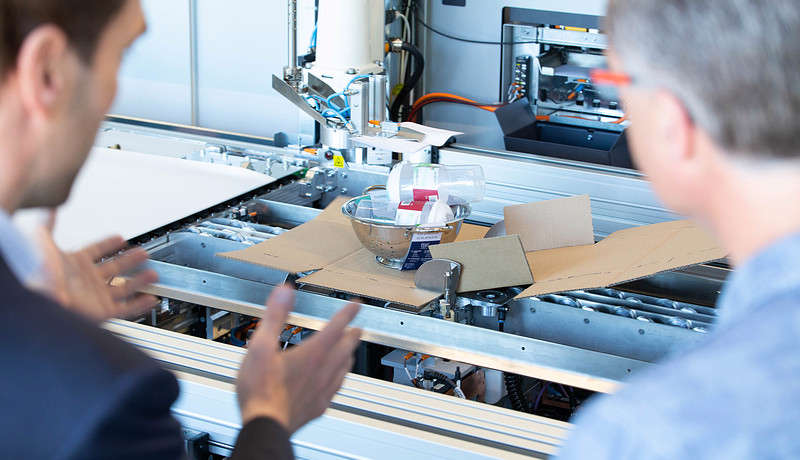Challenge yourself to the max

Student Challenges
- Level
- Language
- English
- Credits
- 30 ECTS
- Startmonths
- Start: February, September
- Locations
- Groningen
We see more and more student initiatives and larger student projects at Hanze University of Applied Sciences Groningen. Within those projects students are challenged to perform at a high level. You have to be creative, disciplined and driven. In most cases the projects lead towards national or international student contests. Some of these initiatives are Hanze Racing Division (HARD), Top Dutch Solar Racing, De Zonneboot and the Mobility Challenge.
Within the minor Student Challenges, there are two options: undertaking a project for an external party or joining a student team.
Joining a Student Team
We are witnessing an increase in student initiatives and larger student projects at Hanze University of Applied Sciences. These projects challenge students to perform at a high level, requiring creativity, discipline, and drive. Typically, these projects culminate in national or international student competitions. Some of these initiatives include Hanze Racing Division (HARD), Top Dutch Solar Racing, Hydrogen Challenge, De Zonneboot, and the Mobility Challenge.
Undertaking a Project for an External Party
Within the various learning communities and research centres at Hanze, students, teachers, researchers, and industry partners collaborate on relevant issues and topics. As a student, you must be flexible, disciplined, and eager to contribute to a research project within a learning community. Some of these communities include EnTranCe (Knowledge Centre for Energy Transition), Health Hub, and TechHub Assen. Additionally, external parties may request support for projects within their companies. While these may not be full research projects, they always incorporate research as part of the programme content.
As a student, you apply for a project within one of these two areas. Based on the assignment and individual learning objectives, you and your teachers/coaches will determine the knowledge and skills required to complete the assignment and achieve the learning objectives. You may acquire the necessary knowledge and skills by taking relevant courses at Hanze, which will then be part of the minor and included in the plan of action. The final product delivered at the end of the minor must add value to the chosen interdisciplinary student initiative, learning community, or external party. The results must be presented to the organisation of your chosen initiative.
Learning Goals
At the start of the minor, you select a subject and technical direction in which you wish to deepen or broaden your knowledge. This could be in fields such as management, communication, engineering, or nutrition and dietetics if you are part of a student team. Alternatively, if you are working on a project for an external party, it will relate to the project's subject. You will then write a plan of action detailing a specific research assignment focused on the chosen subject and linking it to learning objectives.
Before you can start
- Students of Hanze University of Applied Sciences and other universities are welcome. Admission to the minor can be determined by job interviews.
- Students need to have completed a minimum of 100 ECTS credits.
- The student has to submit the proposal of his/her own study programme in order to get approval for this minor.
Schedules
Full-time daytime education in semester 1 or 2.
Evaluation
Assessment is based on the approved individual assignment, the determined learning goals, and the products to be delivered. At a minimum, a reflection report is part of the assessment.
Additional Information
If you choose a project with a student team, you must have a role within a student challenge at the start of the minor.
Admission & application
Are you a student of the Hanze University of Applied Sciences and do you want to apply for this programme? You can apply through Osiris.
Are you a student of a different university of applied sciences in the Netherlands, you can apply for the programme through the website Kies op Maat.
Frequently Asked Questions
Contact
-
Dick de Vries
-
Geert Broekema
Feedback component
How satisfied are you with the information on this page?

.jpg?_jwt=eyJhbGciOiJIUzUxMiIsInR5cCI6IkpXVCJ9.eyJ1cmwiOiJodHRwczovL3d3dy5oYW56ZS5ubC9iaW5hcmllcy9jb250ZW50L2dhbGxlcnkvaGFuemUvb3BsZWlkaW5nZW4vc2llbi93ZXJrdHVpZ2JvdXdrdW5kZS8zLi1ncm9lbmUta2FudC0tLWhpZ2gtcmVzLmpwZz90cz0xNzM0MDkyNDU5MTYyIiwid2lkdGgiOjgwMCwiaGVpZ2h0Ijo0NjAsImZvY3VzUG9pbnRYIjowLjAsImZvY3VzUG9pbnRZIjowLjAsImlzcyI6ImYyMWVjZjc4Yzg0MzRkNWRiNDFmNWQ4YTNhZDBmNmRhIiwiYWN0aW9uIjoidHJhbnNmb3JtIn0.FdH-MuPdp6fpYEV3eQ8O5UTBNcShMdIMQH5BcA1vm9ScPSzqGFJ2Dykh-e9pffa77KUjoBEid5UbQabAqnLOyQ)
